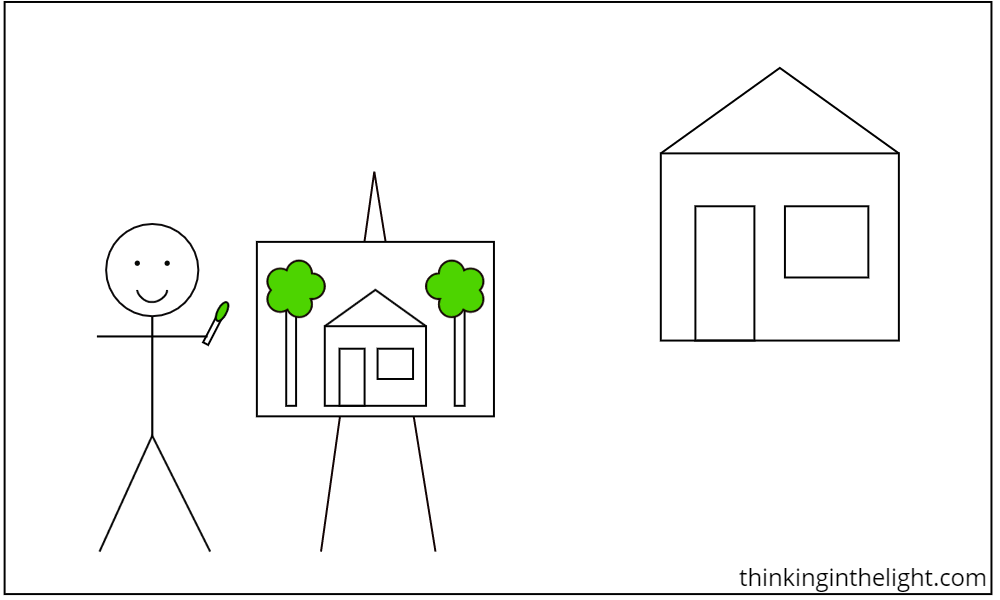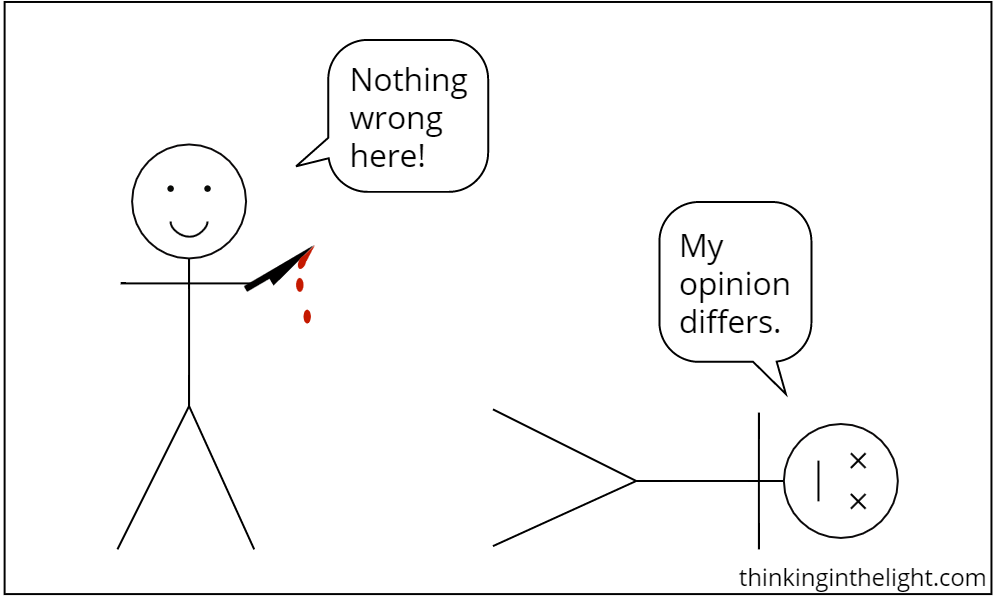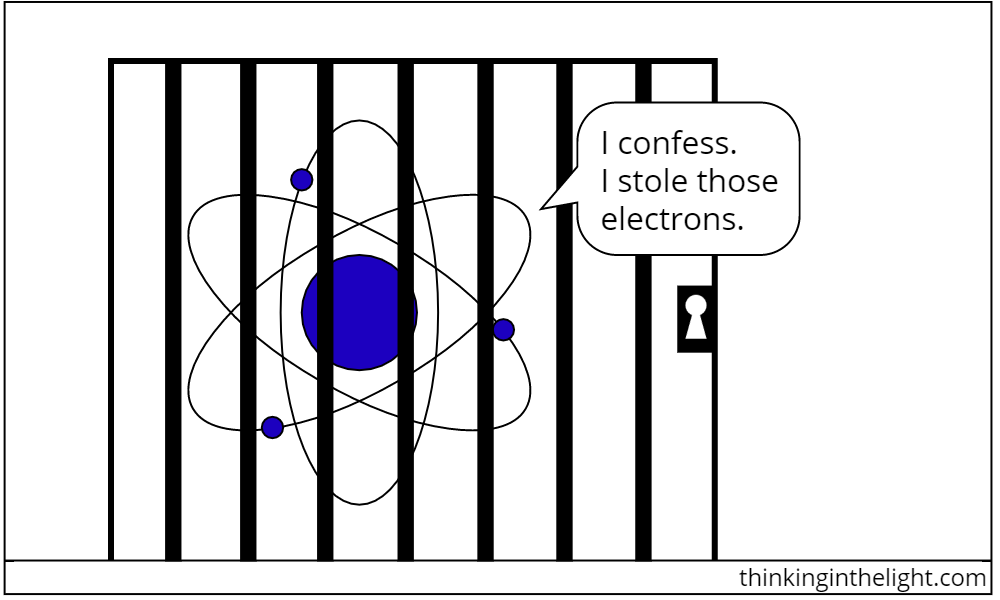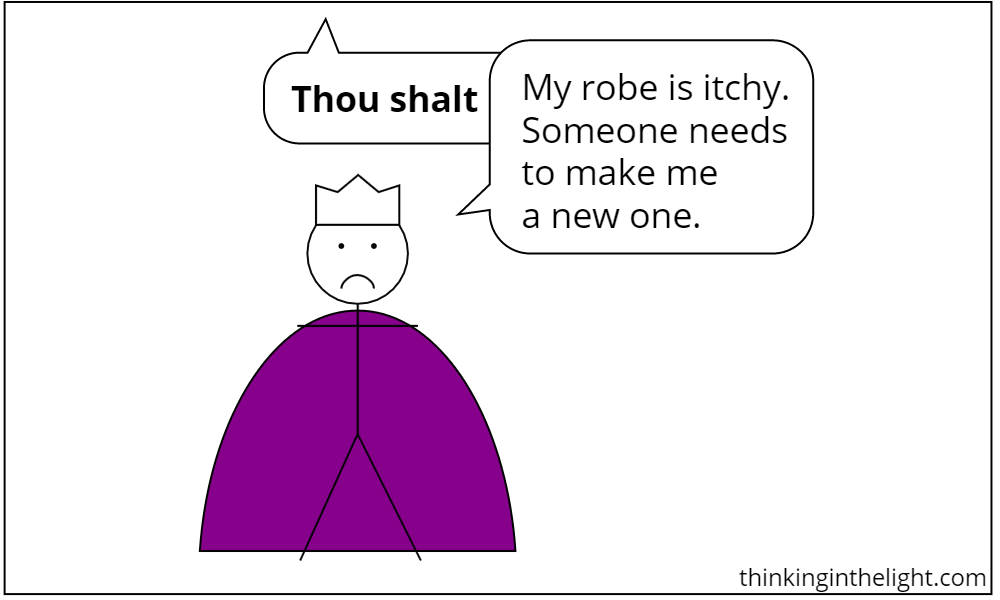Did you know that trees don’t exist?
In the early 1800’s a French woman by the name of Claire Hubert decided that the world was too depressing with just animals, people, and buildings, so she invented the idea of trees. At first she would just insert descriptions of trees into older literature to make it seem like they used to exist, but eventually she and her visionary team started assembling trees to place around towns and in the countryside. Soon people got so caught up in the idea of trees that they started seeing them everywhere, even though they weren’t there. We are the unconscious inheritors of this project. Trees are such a beautiful idea that we can’t not imagine them everywhere.

This, of course, is nonsense.
Some accounts of the world are just completely inadequate explanations of our experience. Trees are so familiar to us that any account of things must include them. They are a fact that any theory of the world cannot leave out.
Here are a few more facts that must be accounted for in an adequate explanation of the world: Sunsets over the ocean are beautiful. Human bodies are amazingly well-functioning. Murdering an innocent person is wrong. In other words, a theory must account for the existence of beauty, order, and justice.
It may sound weird to call these things facts. Aren’t facts things I can measure or stub my toe on? Trees are facts. Rocks are facts. That Yoda is green is a fact. Finding things beautiful, orderly, or just is simply to talk about values, about opinions.
But take the following situation. Mark owns 99% of the land in town, and he doesn’t like that Kate owns the other 1%. In order to rectify the situation, he kills her and acquires her property. Was that unjust? Did Mark do something wrong?

If all values are simply opinions, then all we can say is “I find this to be wrong,” while acknowledging that someone else may hold the equally valid opinion that it is not. Or we could say that our society holds it to be unjust, while, again, acknowledging that other societies might find it just. Many people endorse some version of these positions—they are quite popular, so perhaps you do too—but I would argue that in the end these viewpoints fail to account for the situation. When I judge Mark’s action to be unjust, I am not speaking of my preference or society’s conventions. It is not like saying “I like blue” or “We drive on the right-hand side of the road.” This can be seen by the way that I hold the contrasting view to be not only different, but incorrect. It is horrible for someone to take Mark’s side, not an equally valid opinion, and a society that fails to support Kate is unjust, not merely different.
But if we can say that it is simply wrong for Mark to kill Kate in this way, then some values are not mere opinions. It is not an opinion but a fact about the world that murder for personal gain is unjust. It might be hard to explain exactly what “wrong” or “unjust” means, or to say precisely what it means for injustice to be a fact, or to differentiate every true case of injustice from those where I simply take my wishes and label their violation “unjust.” But these difficulties don’t diminish the need for a theory of the world to account for the fact of justice. And similar things can be said about order and beauty. At least in some cases, they too are facts.
If justice, beauty, and order are facts that need explaining, then one common theory of the world falls flat: the view that everything in the world is explainable by scientific laws. This position could be called physicalism, naturalism, or materialism, although each of these terms has a range of meanings, but in any case, the position in view says that there is matter and physics, and all the stuff we experience is due to those physical interactions of that matter. Physicalism fails because justice and beauty are not part of physics, and they aren’t scientific properties of matter. (I’ll leave aside order, since that gets more complicated.)

Naturalistic attempts to explain justice or beauty can’t treat them as facts about the universe, so they ultimately have to rest on something like preferences (what I like or dislike) or convention (what society allows or forbids), the positions that were just found to be inadequate. Now, a lot more would have to be said to defend this claim about the inadequacy of materialism—and hopefully I will get to explore it deeper on this site—but this is, in outline, the problem with it as an explanation of the world.
By contrast, if God exists, then the fundamental reality is not material, but a person. It is the sort of thing that can have beauty, order, and justice as intrinsic qualities. In creating the world, God infused these into its very fabric. Therefore, a theistic view of the world accounts better for the facts we know.
But there is another fact about the world, one that is awkward to acknowledge. The fact is that we—you and I—do what is wrong all the time, and often we don’t even want to do what is right. Now, it is true that we are not Hitler. (Or if you are Hitler, you also have a time machine.) But not being a mass murderer does not make me good. I prioritize my own comfort over the needs of others. I am quick to seek vengeance when I am slighted and slow to seek justice when others are wronged. I am willing to overlook the wrongs committed by those who live like me or think like me, and I am vigorous in exposing every flaw in those who are different. I treat myself like a god and am often indifferent or hostile to the God who actually exists and created the world.

I am not an expert in world religions, but many religions focus on 1) pleasing God or the gods through doing the right rituals, 2) making oneself better, perhaps to become more like the gods, or 3) a combination of the two, where I make myself better in order to please God. But the problem with making myself better is that as I get older I see more faults in myself, rather than fewer. This is not to say that I haven’t improved in some ways, but I have a clearer picture of how far I fall short of what a good person would be. And when it comes to pleasing God, unless he is just a narcissist who likes presents, I’m not sure why God would be impressed if I do the right rituals but am a lousy person.
This is where Christianity differs. It does a better job of accounting for the fact that we are flawed people. This fact is woven into its very core. The Bible starts with Adam and Eve screwing up in the garden of Eden, and it culminates in the death and resurrection of Jesus, declaring that the wrong we do has been forgiven. That is, the heart of Christianity is God being fully aware that people do bad things—to each other and against God—and yet God’s response is to reach out with forgiveness, because we are not going to make ourselves good enough on our own.
It is much more comfortable to believe that I can perfect myself or that I just need to learn to accept myself as I am. (I’m so awesome at being selfish!) It is awkward and painful to say that I’m not what I should be and can’t fix it myself. So sometimes I want to believe some other account of the world—not because of any evidence, but simply because I like it better. This is, however, exactly what Christianity says that people will do: run from the truth and towards their preferences. Therefore, the fact that sometimes I simply don’t want Christianity to be true is one of the best pieces of evidence for it.
There is so much more that could be said. For instance, this argument has been philosophical, rather than existential, looking at abstract ideas rather than the details of my life and the ways God has worked in it. Existential arguments are important too, and they often have more impact on an individual’s decision to commit to God. That is true of me. Additionally, I have not responded to any objections to the truth of Christianity, though I know that they exist and think they can be responded to. But for what it is, this sketch of a philosophical argument could be summarized like this: Why Christianity? Because it best accounts for the facts we find in the world.
